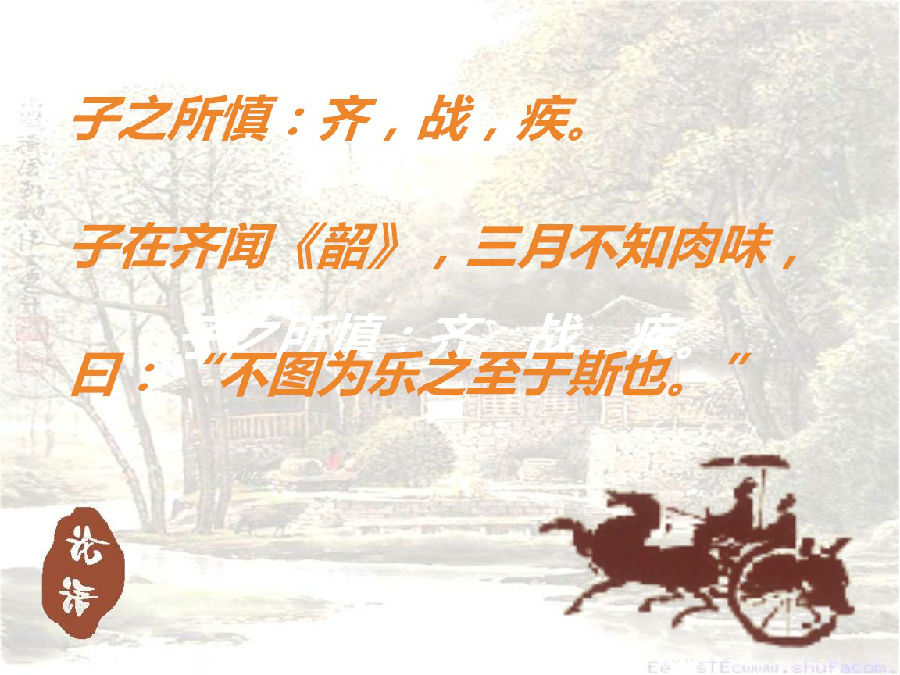The things in reference to which the Master exercised the greatest caution were — fasting, war, and sickness.
子之所慎:齐,战,疾。
When the Master was in Ch'i, he heard the Shao, and for three months did not know the taste of flesh.
子在齐闻《韶》,三月不知肉味,
"I did not think'" he said, "that music could have been made so excellent as this."
曰:“不图为乐之至于斯也。”
Yen Yu said, "Is our Master for the ruler of Wei?"
冉有曰:“夫子为卫君乎?”
Tsze-kung said, "Oh! I will ask him."
子贡曰:“诺,吾将问之。”
He went in accordingly, and said, "What sort of men were Po-i and Shu-ch'i?"
入,曰:“伯夷、叔齐何人也?”
"They were ancient worthies," said the Master.
曰:“古之贤人也。”

"Did they have any repinings because of their course?"
曰:“怨乎?”
The Master again replied, "They sought to act virtuously, and they did so; what was there for them to repine about?"
曰:“求仁而得仁,又何怨?”
On this, Tsze-kung went out and said, "Our Master is not for him."
出,曰:“夫子不为也。”
The Master said, "With coarse rice to eat, with water to drink, and my bended arm for a pillow; I have still joy in the midst of these things.
子曰:“饭疏食饮水,曲肱而枕之,乐亦在其中矣。
Riches and honors acquired by unrighteousness, are to me as a floating cloud."
不义而富且贵,于我如浮云。”
The Master said, "If some years were added to my life, I would give fifty to the study of the Yi, and then I might come to be without great faults."
子曰:“加我数年,五十以学《易》,可以无大过矣。”











